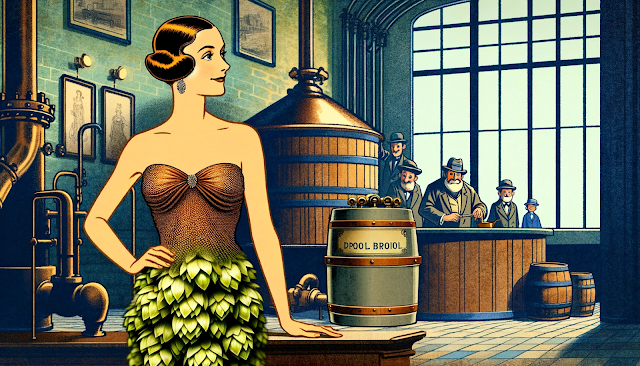Beer brewing is an art form, and hops play a pivotal role in this craft, adding aroma, flavor, and bitterness to the brew.
With different types of hops available, it's essential to understand their differences and how to store them properly to maintain their integrity and quality.
Pellet Hops vs. Whole Leaf Hops: What's the Difference?
Processing and Packaging: The primary distinction between pellet hops and whole leaf hops lies in their processing. While pellet hops are compressed forms of whole leaf hops shaped into small pellets, whole leaf hops remain the unaltered, dried hop cones.
Storage Efficiency: Pellet hops have an edge when it comes to storage. They occupy less space and are generally considered more convenient, particularly for measuring and adding during the brewing process. Conversely, whole leaf hops demand more storage space and can be slightly cumbersome to use due to their bulkier nature.
Brewing Efficacy: Pellet hops are known for their higher utilization rate, ensuring more alpha acids are extracted during boiling. This translates to a more efficient brewing process. However, whole leaf hops often deliver a richer aroma and flavor but might introduce more cloudiness to the brew.
Freshness: Both types of hops degrade over time, losing their bittering qualities and essential oils. Hence, preserving their freshness is paramount.
Preservation of Hops:
After opening, hops must be stored correctly to retain their properties. Freezing hops in airtight containers, like zip-lock bags with air removed, is a widely practiced method. For those aiming for precision, vacuum sealing offers an advanced solution, eliminating any air and potentially negating the need for freezing.
Refrigeration is another option, with hops staying fresh for up to a year if stored in air-tight conditions.
Exploring Other Hop Varieties:
Powdered Hops: A less common variant, powdered hops are ground into a fine consistency. While they can be used in brewing, their measurement can be challenging, and their efficiency might not match up to pellet or leaf hops.
Cryo Hops: Resulting from a process using liquid nitrogen to separate the lupulin gland from the hop cone, cryo hops are more concentrated in resins and oils. They are prized for their intensified aroma and flavor.
Lupulin Hops: Focusing on the lupulin gland containing the resins and oils responsible for hops' characteristic bitterness and aroma, lupulin hops provide an intense flavor profile.
Both cryo and lupulin hops are recognized for their heightened efficiency in the brewing process, extracting more alpha acids during boiling. However, their specialty nature often means they come with a steeper price tag.
Addressing Concerns: Infections in Whole Leaf Hops:
Whole leaf hops can become susceptible to bacterial and fungal infections during their growth, harvest, drying, storage, or shipping phases. Some prevalent infections include downy mildew, powdery mildew, bacterial diseases, and storage mold. These infections can compromise the hop's quality, yield, and aroma. Proper sanitation practices are crucial to minimize infection risks.
In the event of suspected infection, it's advisable to discard the hops, as using them can introduce undesirable flavors and potentially spoil the beer.
Final Thoughts:
Choosing the right hop variety and ensuring its proper storage is vital for achieving the desired aroma, flavor, and efficiency in brewing.
Whether one opts for pellet, whole leaf, or other specialized hop forms, understanding their characteristics and potential can significantly enhance the brewing experience.


